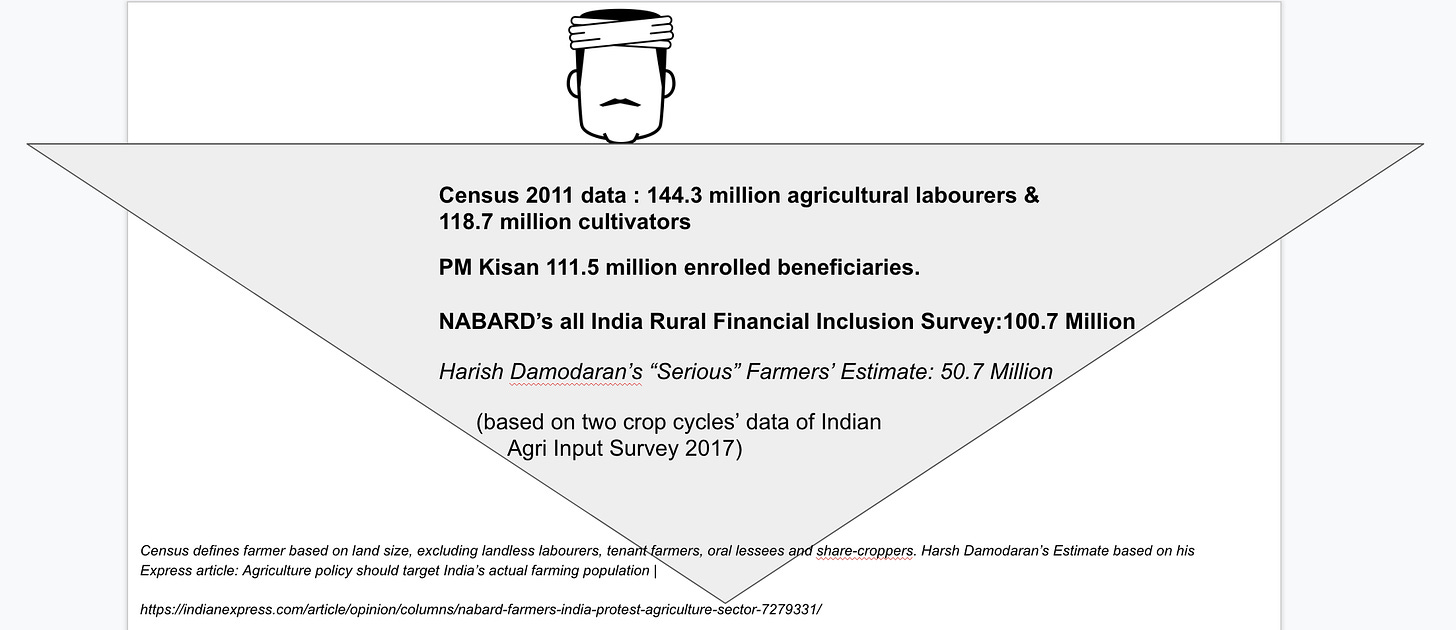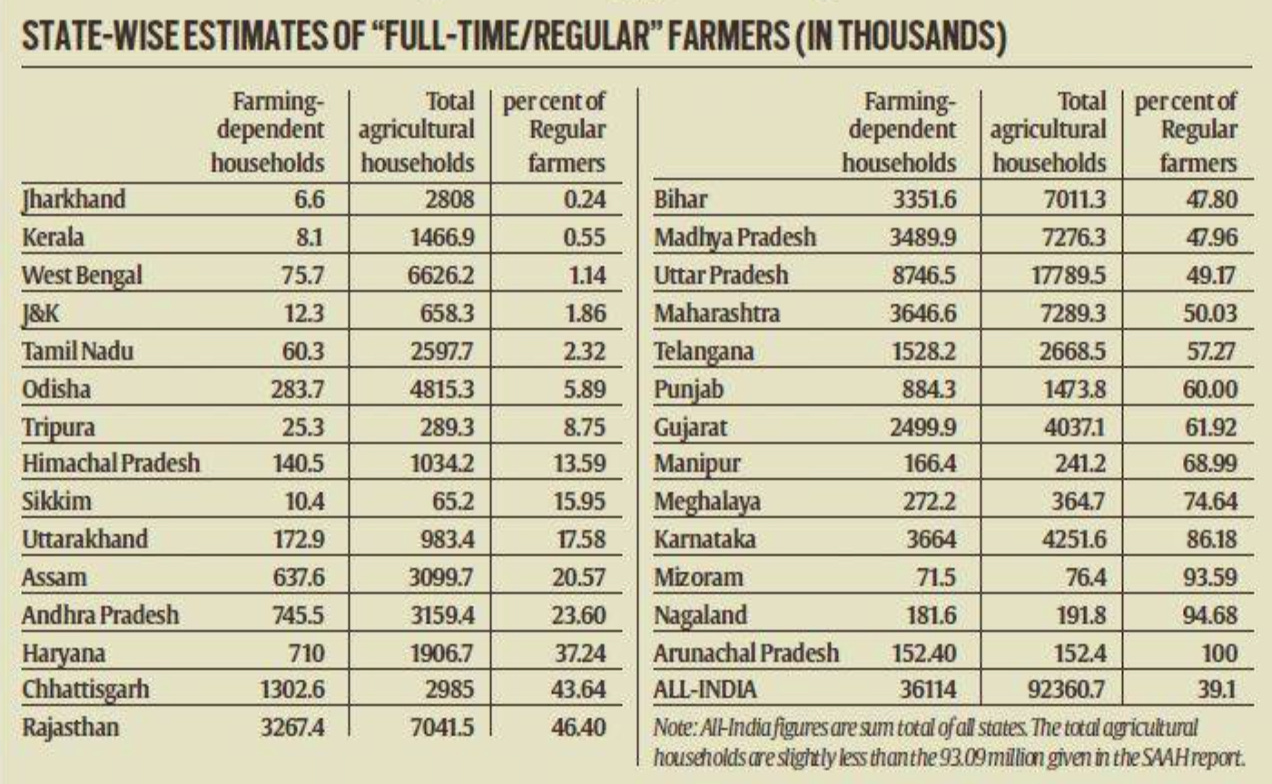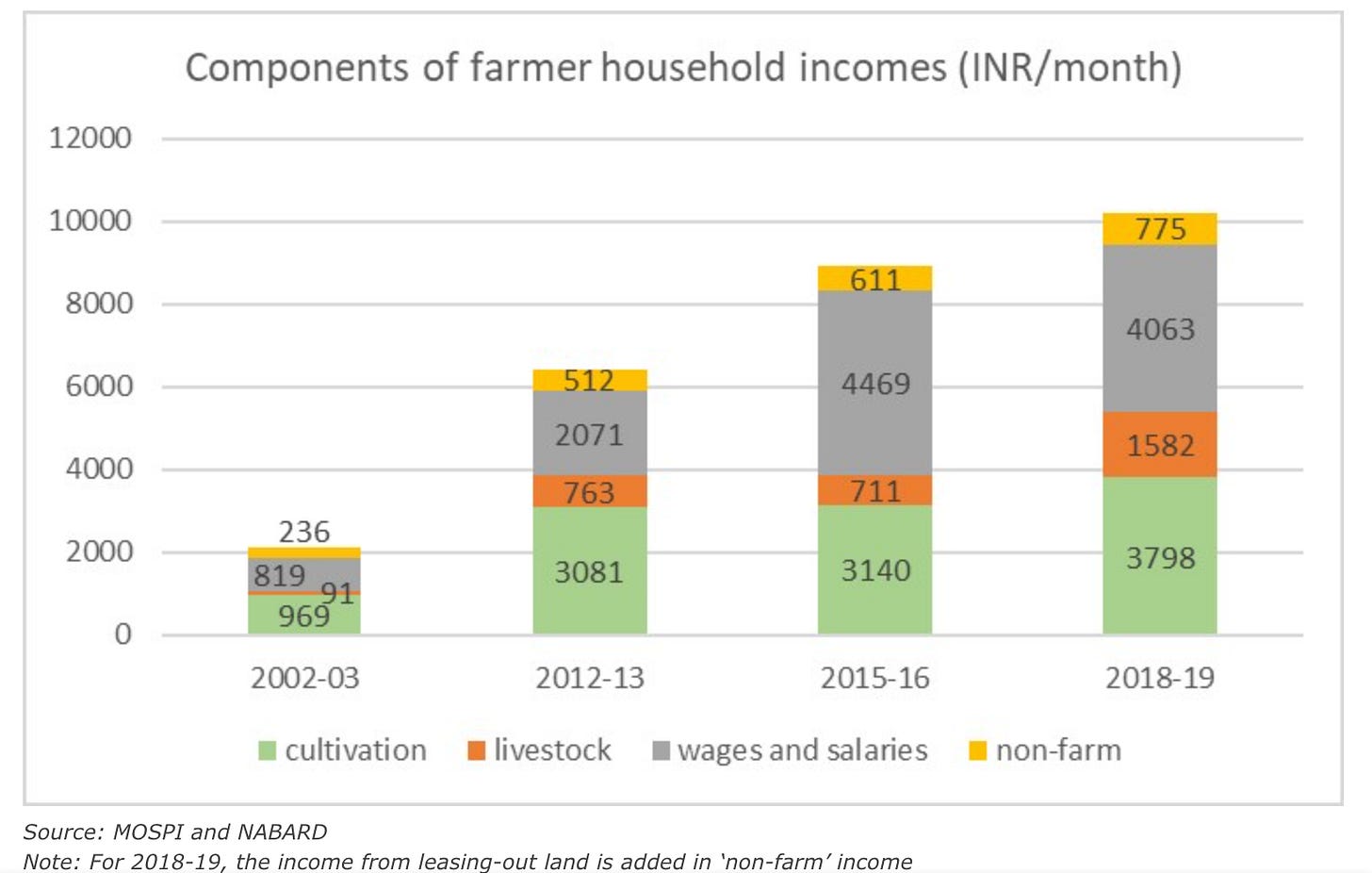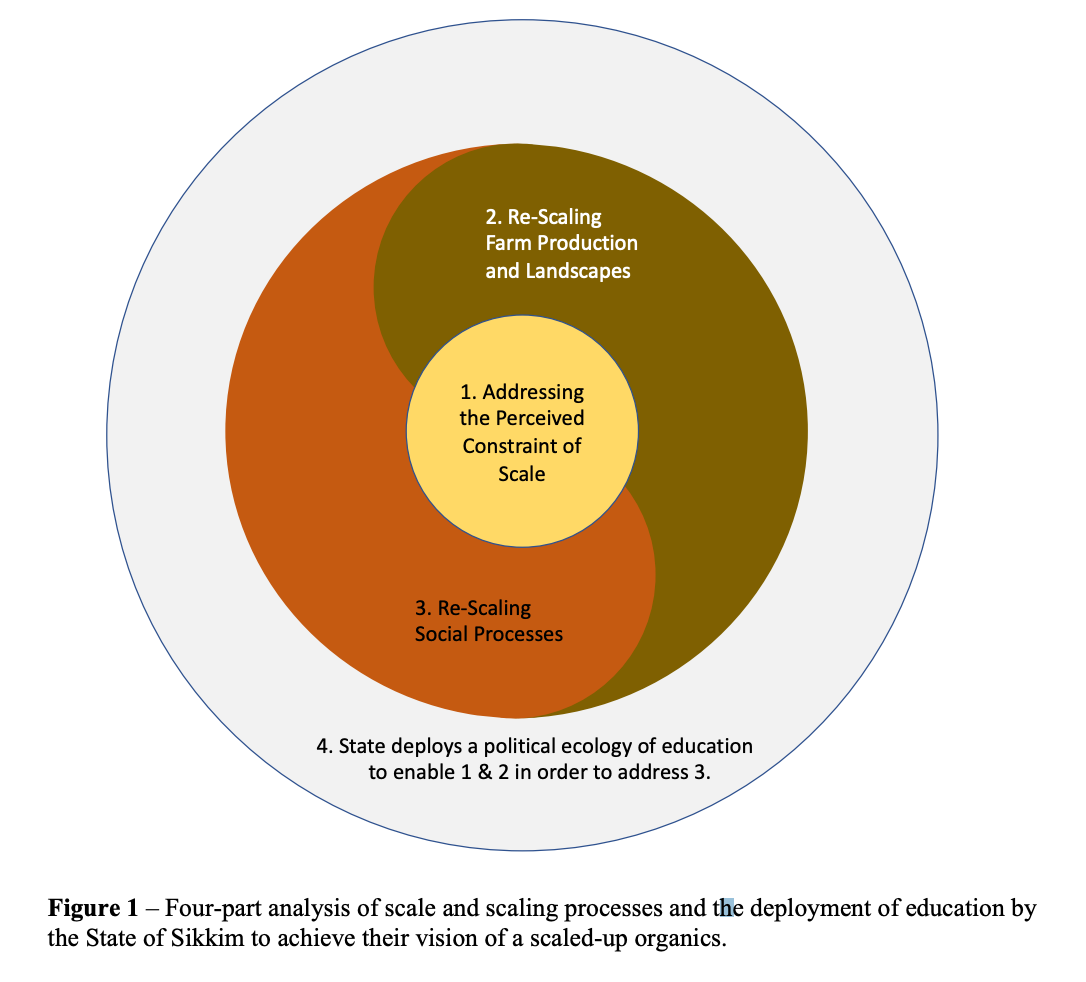Saturday Sprouting Reads (State of Indian Agriculture, Sri Lanka's Organic Farming Experiment, Sikkim)
Kickstarting a new Open Thread section for the community to chime in with AMAs, links+ book recommendations, interesting startup finds, and comments.
Hi Friends,
Greetings from Hyderabad!
Re-reading is underrated. I have been re-reading Amitav Ghosh’s fascinating “The Great Derangement” after I gobbled it up in one swoop when it was released in 2016. It is incredible to observe this seminal book on the dangerously uncanny nature of climate change (and why we continue to not take it seriously) shapeshift inside my head, as I revisit it now after Code Red and the pandemic.
I am rereading it for a reason.
I am doing a Clubhouse Dialogue with Mark Kahn this Monday 12 PM IST on “Religion and Climate Change”, where Mark and I will explore our relationships with Jewish and Hindu faiths and how it has been helpful in grappling with the certain climate emergency futures that await us and our children in the near foreseeable future. It’s happening at Clubhouse. Of course, I am hoping that their infamous algorithms don’t throw us out for talking modern-day taboo matters of religion and climate change.
Now over to Saturday Sprouting Reads.
Will the Real Indian Farmer Please Stand Up?
Say, you are a policymaker with key decision-making powers. You have two proposals for review. One makes a case for offering price support for marginal farmers. The other makes a case for offering income support for marginal farmers. You have to make a decision and select one proposal.
While many market-oriented economists and venture capitalists have argued for income support, based on the argument that price support distorts the market, several ground-reality economists have stuck their neck out and argued for price support for a simple reason: It is fricckin difficult to arrive at a consensual definition of the Indian farmer.
There is no one singular definition of Indian farmer for good and bad reasons. If you draw a funnel of various definitions of Indian farmers, what you might see can look like this.
In this article, based on Situation Survey 2019 data, Harish Damodaran and Samridhi Agarwal make a strong case that we have been overestimating the total number of farmers as 100-150 Million when actual numbers could be as low as 40 million. That is, we are talking of those who do “serious” farming - those whose net receipts from farming are at least 50 percent of their total income from all sources.
Why is this a big deal?
01 Indian Farmers are more agri-laborers than cultivators.
If you break down Indian farmers’ income, it boils down essentially to three sources: Labour, Cultivation, and Livestock. What the Situation Survey 2019 data is pointing out is this: Labour and Livestock dominate the economic profile of the “average” Indian agricultural household. Those who are “full-time/regular” farmers cultivate on a holding size that exceeds one hectare or 2.5 acres- something which 70% of the farmers don’t possess.
In other words, if you are a marginal farmer, you can’t make money out of farming in India, unless you have at least 2.5 acres.
02 Number of farmers are increasing while incomes are declining
In my subscriber-only piece on one of the most grounded “Future of Agriculture” scenario prediction models I had come across, I had written about the increasing number of people joining agriculture for employment.
As predicted, data from India is now emerging that an increasing number of people are joining agriculture for employment, a shift from non-farm sectors like manufacturing and other informal jobs.
“The CMIE analysis says that the share of the agriculture sector in total employment has increased to 45.6 percent in 2019-20, from 42.5 per cent in 2018-19.”
So what is the bottom line?
India is moving towards Lewis Trap, with income differential between farmer and non-farmer incomes widening, while the agricultural labor force is increasing.
Sri Lanka’s Organic Farming Experiment
If you are a “developing” country, when do you care about environmental issues?
Do you behave like Bhutan - You have no emissions to cut down as you give up on unsustainable growth? Or do you behave like China- You grow your economy fast, but make up for it later, with strict carbon neutrality targets?
Or do you behave like India- You are doing your darnedest to grow fast while not worrying too much about environmental issues. You also perhaps feel good about your religiosity as it helps you make peace with your economic conditions.
Or do you behave like Sri Lanka - You realize that the road to industrialization is a dead end and you boldly embark on deindustrialization, even if it is worth the price of democratic failure and economic growth?
Sri Lanka isn’t alone. Now that capital is global, African countries are pushing on environmental regulation early on in their “development” curve.
A lot has been written about Sri Lanka’s organic farming experiment.
From Down to Earth:
“That organic farm yields are significantly lower and its prices higher is well-known. What is less known are the reasons why chemical farming yields are high.
As yield increases, its prices decrease. Each of the three pillars of the Green Revoliution — irrigation, chemical inputs, and pesticides — has left the natural environment weaker. High irrigation requirement of the High-Yielding Variety (HYV) crops has led to an alarming reduction in groundwater levels in most parts of India.”
I wrote here for subscribers: What would happen when India runs out of groundwater?
From Foundation of Agrarian Studies
Agricultural scientists have always been aware of the nutrient deficiencies of soil, as well as the perils of overuse of chemicals and the improper/imbalanced application of fertilizers. They therefore recommend location-specific solutions to nurture soil health and sustain increases in soil fertility. They suggest soil-test-based location-specific balanced fertilisation and integrated nutrient management methods combining organic manures (i.e., farmyard manure, compost, crop residues, biofertilisers, green manure) with chemical fertilisers. Thus, while they may advocate reducing the use of chemical fertilisers in some locations, they would promote its use in others.
Such a comprehensive and integrated approach requires a firm adherence to science and the scientific method, and an equally firm rejection of anti-science models dressed up as “organic,” “eco-friendly,” “pro-nature” and so on. President Rajapaksa’s policy falls squarely into the latter category, much like the promotion of Zero Budget Natural Farming (ZBNF) by the present Government of India. Only the total withdrawal of this policy can save Sri Lankan agriculture. The Sri Lankan government would do well to listen to the country’s agricultural scientists and not to quacks masquerading as experts.
From Tribune:
The challenge before Sri Lanka is to redesign its research, development and production approaches. It has to first begin by reorienting the national agricultural research programmes suitably altering the educational curriculum. Research priorities need to shift based on validating and protecting community knowledge and innovations. Especially to address the complexities of climate change, traditional varieties and the richness of available diversity offers immense resilience. Care must be taken to ensure that the transformation process is participatory; forcing it down on farmers will not work in the long run
While chatting with a researcher friend who had collaborated in a study of Indian State Sikkim’s tryst with Organic farming, he recounted an insightful anecdote.
“The most striking statement in Sikkim was from the then organic farming mission head - "we could achieve 100% organic because we didn't have an Agricultural University".
Be it Sri Lanka or the Indian state of Sikkim or any other state that wants to go “organic” top-down, you are ruining possibilities of change, whenever you mandate it.
As this excellent paper analyzing Sikkim’s Organic farming mandate experiment warns us,
If “organic by design” means reducing agrobiodiversity, and transitioning to export oriented production, the state’s vision might face the realities experienced by various states who have failed to see social reality as they seek to remake it.
Open Thread
Drop-in any links /books that will be of interest to Agribusiness Matters readers.
Are you an agritech startup solving interesting challenges in organic farming? Feel free to comment here and advertise your startup.






